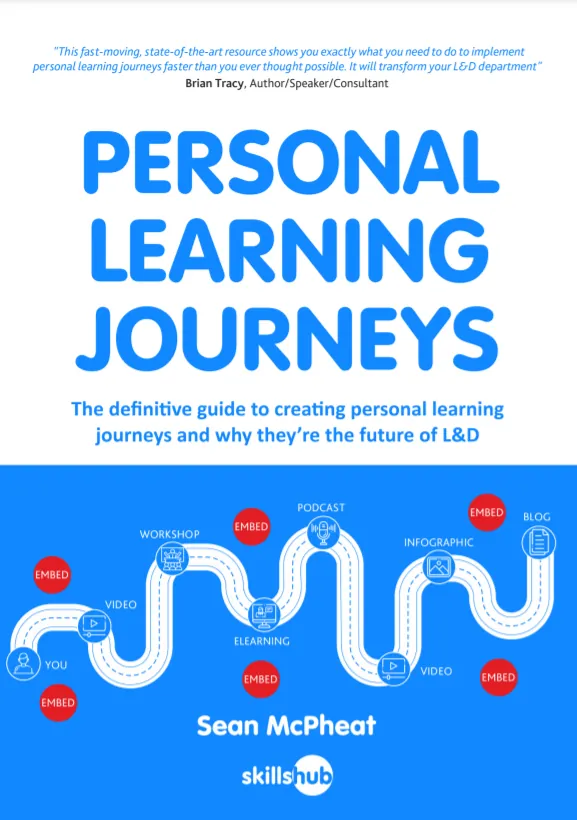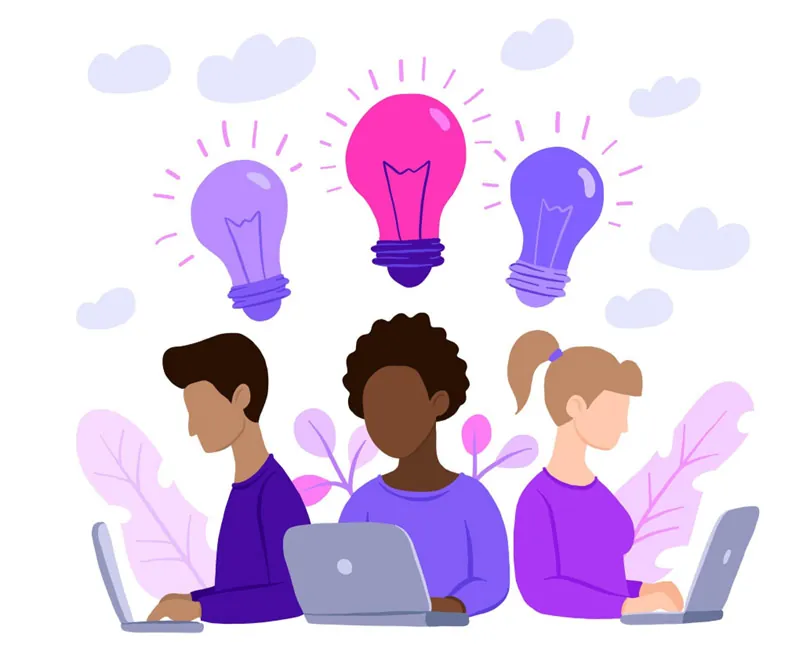
Time Management Skills are no longer a nice-to-have. They are essential for staying focused in a world full of constant noise, distractions, and demands.
Between back-to-back meetings, endless notifications, and blurred work boundaries, it is no wonder productivity is slipping.
But the problem is not just being busy. It is about being busy with the wrong things.
As an elearning provider working with thousands of learners every year, we see firsthand what actually helps people stay focused and in control. That’s why we’re sharing time management skills that work in today’s always-on workplace and how you can apply them when it matters most.

The State Of Time Management In Today’s Workplace
Anyone who has worked in a modern office knows how easily distractions pile up.
It’s no surprise that many of us feel our focus slipping and with it, our ability to perform at our best.
Why It’s Getting Harder To Focus At Work
Around three-quarters of UK office workers operate in an open plan office, a design characterised by few physical barriers between workstations. The good news is that workers appreciate the ways in which this model creates sociability and collaboration, citing improved mental and physical health as key benefits.
However, open plan offices can be noisy and distracting, with 37% of workers believing they negatively impact productivity.
While sitting in close proximity to your team members can help create creativity and enhance morale, it’s difficult not to slip into idle chat about irrelevant topics.
To make matters worse, today’s employees face a constant stream of notifications from their digital devices, disrupting focus throughout the day. From urgent emails to a constant stream of pings from our favourite Slack channels, around a third of employees receive a notification every 15 minutes.
Given that it takes about 23 minutes to refocus after a single digital distraction, the average worker requires a willpower of steel to maintain concentration on a single task.
Finally, it’s worth noting that an increasing number of employers are adopting hybrid models, giving employees the option to work from home several days a week.
While this can support work life balance and improve wellbeing, it also brings new demands. Employees must rely heavily on video calls, chat tools and shared platforms to stay connected with their teams and leads.
In other words, it deepens our dependence on the very digital tools that often drain time, energy and focus.

Learn How To Create Personal Learning Journeys For FREE!
What’s Changed In How We Manage Our Time?
Before the age of digital overload, time management was relatively straightforward.
You or your manager would map out a simple schedule, prioritising tasks based on urgency. Minor adjustments were made as needed, but plans generally held.
Now, time management has become far more reactive. Diaries still matter, but their role has shifted.
You can mark yourself as tentative for meetings, or have events dropped into your calendar without notice. Combine that with instant communication tools, and managing time today demands constant flexibility and compromise.
It is a soft skill – but one that is tough to master, especially when boundaries are blurred and expectations unclear.
Core Time Management Skills Every Professional Needs
If you feel like you are fighting a losing battle with time management, you are not alone.
Recent figures suggest around 30 percent of people struggle to manage their time, often due to habits like constantly checking emails or failing to prioritise tasks. The good news is there are practical tools and strategies that can help you stay focused and meet deadlines with confidence.
Prioritising What Actually Matters
Many people leap into action the moment a notification appears, especially those who are naturally conscientious or eager to help.
But most requests are not urgent. They just need to be prioritised properly and added to your schedule. If you tend to get flustered, pause before reacting. Interrupting one task to start another can result in unfinished work, missed deadlines and frustrated colleagues.
If you need help drawing up a task plan or schedule, a productivity app such as Asana or Trello could prove invaluable.
Avoiding The Trap Of Fake Productivity
Attending every meeting and replying to every message might feel productive, but it rarely drives meaningful results.
Work that creates impact usually happens over time. It involves deep thinking, focused effort and ongoing collaboration.
If your days are filled with busywork, step back. Talk with your team and leaders about long term goals and focus areas that deserve more of your attention.
Saying No Without Feeling Guilty
If you love your work and like to be helpful, saying yes becomes a habit. But constantly agreeing to requests leads to burnout and unfinished priorities.
Learning to say no takes skill and confidence. If that feels unfamiliar, try these tips:
- Be clear and polite. Explain that you cannot take on the task and give your reason.
- Acknowledge the request with respect. Most people are not trying to overload you.
- Suggest other options if you can. Perhaps a colleague has capacity.
- Practise saying no in everyday life. Declining a social invite can be a good place to start.

Common Distractions That Harm Time Management
Let’s be honest, a lot of what fills our day adds stress, not value.
The solution?
Streamline your workday so that your most important tasks get the time and energy they deserve.
Here are a few tips to help you cut the clutter and focus on what matters.
Notifications, Meetings, And Mental Clutter
Notifications interrupt focus. They break your concentration and pull you out of your mental ‘flow’.
The same goes for unnecessary meetings. While some are useful for sparking ideas or clarifying urgent plans, many could be replaced by a short email or a shared update.
Start identifying which meetings are essential and which ones are not. Work with colleagues to protect each other’s time and reduce unnecessary calls.
Mental clutter is another hidden time killer. These are the thoughts that distract you mid-task – like worrying about another project or replaying a message you just received.
The fix?
Prioritise what needs immediate action and park everything else. Write down tasks you will handle later so you do not need to carry them in your head. A simple to-do list gives you mental space to focus on one thing at a time.
Why Multitasking Is Slowing You Down
Many people pride themselves on multitasking. But in reality, very few can do it well.
Constantly switching between tasks slows you down. It drains focus and increases the risk of mistakes. Your brain works best when it can give full attention to one task at a time.
If single-tasking feels unnatural, try batching similar tasks together or using apps that help limit digital distractions. You might also block off time in your diary for deep focus work and protect it the same way you would a meeting.

Time Management In A Remote Or Hybrid World
More than 90% of workers around the world have a positive view of remote working, which means it is likely here to stay. But with this shift comes new challenges in how we manage our time and stay productive.
Keeping Boundaries When Work Follows You Home
Remote work often blurs the line between professional and personal time. Without a commute to mark the end of the day, it is easy to respond to just one more message or keep your laptop open well into the evening.
To protect your boundaries, set clear work hours and stick to them. Create a dedicated workspace if you can, and let your team know when you are available. A simple out of office message or shared calendar status can help set those expectations.
These small actions can make a big difference to your mental space and overall wellbeing.
How To Manage Your Calendar Like A Pro
If you let others fill your diary freely, your day can quickly disappear into meetings, updates and check ins, leaving no time for focused work.
To stay in control, use time blocking. Reserve protected slots in your calendar for deep work and key projects. Treat these blocks like you would a meeting. They are fixed commitments, not optional time.
You can also schedule lighter admin tasks for times when your energy dips, such as just after lunch or near the end of the day. That way, your high energy moments are reserved for your most important work.
Digital Tools That Help And Hurt Time Management
Used well, technology can sharpen your focus and help you get more done. Used poorly, it becomes just another distraction.
Today, there are countless productivity apps and time tracking tools available, many of them free. The challenge is finding the ones that actually work for you.
What To Look For In A Time Management App
Choose tools that simplify your day rather than complicate it. The last thing you need is another admin task that eats into your time.
Look for features like calendar syncing, time tracking, task prioritisation and distraction blockers.
Popular options include:
- Clockify to track how long tasks take
- Forest, where a virtual tree grows while you stay focused
- Todoist, which helps you organise priorities and assign tasks to others
When Tech Becomes Another Distraction
If you enjoy trying new tech, it is easy to fall into the trap of downloading app after app and endlessly tweaking your setup.
Avoid this by limiting yourself to two or three core tools. Review them regularly and cut anything that adds more effort than value.

Training Teams On Time Management Skills That Stick
Time management is not rocket science, but teams often need a push in the right direction to build a culture of focus and accountability.
As an organisation, there are many ways to get started beyond simply offering employee training.
Making It Part Of Your Company Culture
Senior leaders often model behaviour that can unintentionally encourage burnout, such as replying to emails late at night or constantly taking on more than they can realistically manage.
While this might seem like dedication, it can lead to a culture of overwork that benefits no one.
Instead, leaders should set the tone for a healthier approach by discouraging after hours communication, protecting time for deep work and promoting work life balance as a performance driver.
You can also reinforce these values through internal messaging and by including time management check ins during performance reviews. This offers extra support to anyone struggling with organisation and focus.
How Managers Can Support Better Habits
Managers play a critical role in developing sustainable time management habits across their teams.
If you see someone staying late or regularly missing deadlines, start a conversation. It may be an issue with workload or priorities or it may be something more personal.
Creating space to talk helps build trust and supports a healthy mindset at work, which in turn improves performance.
You can also make practical changes that deliver quick results. This might include cutting back on unnecessary meetings, encouraging asynchronous communication or giving the team more control over how they plan their day.
Wrapping Up
We all know someone who seems to manage their time effortlessly, fitting in a full family life, an active social calendar and a demanding workload all in one week.
The good news is they are not superhuman. They have simply mastered time management and you can too.
Small changes can make a big impact. Whether it is setting clear boundaries or protecting time for deep, focused work, these shifts can improve productivity, boost morale and help your team thrive.
At Skillshub, we provide detailed and effective eLearning content that teaches employees how to manage their time in today’s “always-on” world.
If you want to strengthen your employees’ time management skills, a bespoke eLearning course could give your team the clarity and focus they need. Whatever your sector, we can design a course that fits your people and deliver it through an easy to use elearning platform.
No fluff. Just content that works.













